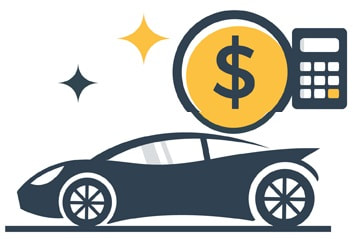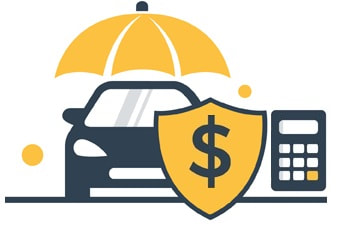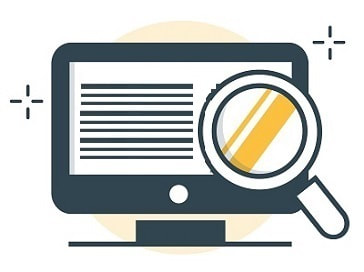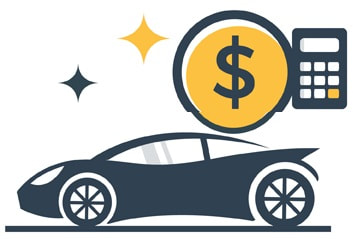What is an Operating Lease? The Definitive New Zealand Guide
Our guide explains operating leases, their pros and cons, alternatives, tax treatments, and must-know facts and answers the most frequently asked questions concerning finance leases.
Updated 26 July 2024
Summary:
Our guide covers:
Important: This guide provides general information only. For specific advice around a finance lease, please speak to an accountant to ensure that your decision is suitable and tax-effective for your business.
- One of the most common areas of uncertainty that New Zealand businesses have regarding capital expenditure and expansion is around leases.
- In particular, operating and financing leases are used interchangeably but have different meanings and implications on purposes, tax treatment and ultimate cost.
- This guide explains what operating leases are, how to take one out, their unique pros and cons and how operating leases differ from other types of leases.
- Operating leases can be a useful financing option for companies that need to use an asset for a specific period but do not want to commit to a long-term purchase. However, it's important to consider the lease terms and total cost carefully to ensure it's the most cost-effective option.
Our guide covers:
- What is an Operating Lease?
- Pros and Cons of Operating Leases
- When Taking out an Operating Lease, What Technical Things Do I Need to Know?
- Must-Know Facts about Operating Leases
- Popular Operating Lease Companies in New Zealand
- Frequently Asked Questions
Important: This guide provides general information only. For specific advice around a finance lease, please speak to an accountant to ensure that your decision is suitable and tax-effective for your business.
- If you're looking for information about financing leases, please visit our detailed guide.
- Our guide to business vehicle finance options compares options.
- Do you want to understand the difference between a Financing Lease and an Operating Lease? Our dedicated comparison guide explains the differences.
What is an Operating Lease?
- An operating lease is a rental agreement that allows a company to use an asset for a specific period, typically shorter than the asset's useful life.
- Operating leases are commonly used for equipment, vehicles, and other assets that depreciate over time. In New Zealand, operating leases are regulated by the Financial Markets Conduct Act 2013 and the Consumer Guarantees Act 1993.
- An operating lease is a contract between a lessor (the owner of the asset) and a lessee (the company using the asset). Under an operating lease, the lessor retains ownership of the asset, and the lessee pays the lessor a periodic fee to use the asset.
- The lessee has the right to use the asset for the agreed-upon term but has no ownership rights. At the end of the lease term, the lessee is not required to purchase the asset and can return it to the lessor or enter into a new lease agreement.
What essential terms do I need to know when it comes to operating leases? And what to the terms mean?
Almost all operating leases will include the following terms in the operating lease contracts:
- Lease terms: The terms of an operating lease can vary widely, so it's important to carefully review the terms of any lease agreement before signing. Some important factors to consider include the length of the lease, the payment schedule, the condition of the asset at the end of the lease, and any termination restrictions.
- Payment schedule: The payment schedule for an operating lease can also vary widely. Some leases may require fixed monthly payments, while others may have variable payments based on the use of the asset. It's important to carefully review the payment schedule and to ensure that it aligns with the company's cash flow and budget.
- Lease documentation: It's important to carefully review all lease documentation before signing an operating lease. This review includes the lease agreement itself and any other documents that may be required, such as a security deposit agreement or a maintenance agreement. It's also a good idea to seek legal advice to ensure that the lease terms are fair and reasonable.
- Maintenance and repairs: As mentioned earlier, the risk of damage or loss to the asset typically remains with the lessor in an operating lease. However, the lessee may still be responsible for any repairs or maintenance during the lease term. Therefore, it's important to carefully review the terms of the lease to understand the lessee's responsibilities in this regard.
- Lease-end inspections: At the end of the lease term, the lessor may inspect the asset to determine its condition. If the asset is not in good condition, the lessee may be required to pay for necessary repairs or maintenance. Therefore, it's important to review the lease terms carefully to understand the lessee's responsibilities.
- Depreciation: In an operating lease, the lessee does not own the asset and therefore does not benefit from depreciation. Depreciation is allocating the cost of an asset over its useful life, and it can provide a tax benefit to the asset owner. For this reason, operating leases may not offer the same tax benefits as purchasing an asset outright.
- Termination clauses: Operating leases typically have specific terms and conditions regarding early termination. If the lessee needs to end the lease before the end of the lease term, they may be required to pay a termination fee or other penalty. Therefore, it's important to carefully review the lease terms to understand the process for terminating the lease and any potential costs.
- Lease-end options: At the end of the lease term, the lessee may have several options. They may be able to return the asset to the lessor, enter a new lease agreement, or purchase the asset. Considering the best option for the lessee's needs and financial situation is important.
|
Is Your Business Looking for a Loan to Finance an Asset Purchase? Avoid high-interest rates and high fees.
Choosing a lender that offers competitive rates, fair terms and wants to lend is essential. In our search for such lenders, one name that stands out is Prospa. Prospa: A Practical Choice for Business Borrowers Our research indicates that Prospa often offers lower interest rates and fees than many traditional lenders, helping businesses manage costs effectively. We have seen it become popular with many MoneyHub users who are business owners. Straightforward Application Process Applying with Prospa is simple and takes just a few minutes. There's no commitment required when you apply, so you're free to consider your options without any pressure. Why Comparing Rates Matters We always suggest business owners compare different loan offers. Applying with Prospa is free, and by comparing, you increase your chances of finding a loan that suits your business's needs and budget. Long-Term Impact of Your Interest Rate The interest rate on your loan will influence your repayments over time. Considering how this will affect your business finances in the long run is important. Our Advertising Transparency MoneyHub may receive a referral commission, but this does not influence our recommendations. Our priority is to provide reliable and unbiased information. Interest rates and assessment times can vary based on your circumstances. Get Started Visit Prospa to explore their offerings and see if they meet your business lending needs. Remember, making an informed choice will almost always make a big difference to your business's financial future. |
Christopher Walsh
MoneyHub Founder |
Pros and Cons of Operating Leases
There are several benefits to using an operating lease:
There are also some potential drawbacks to using an operating lease:
- Flexibility: Operating leases allow companies to use an asset for a specific period rather than committing to a long-term purchase. This flexibility can be helpful for companies that only need an asset temporarily or that want to keep their options open.
- Lower upfront costs: Because the lessee does not own the asset, they aren't responsible for its upfront costs. This characteristic can make it easier for a company to acquire the needed asset without incurring large upfront expenses.
- Conserve cash to use for other business activities: Operating leases allow companies to conserve their cash, as they don't have to pay the upfront costs of purchasing the asset. This option can be helpful for companies that need to conserve their cash for other purposes.
- Easier budgeting: Operating leases have fixed payment terms, making it easier for companies to budget for their expenses.
There are also some potential drawbacks to using an operating lease:
- Higher overall costs: Because the lessee does not own the asset, they may pay more over the lease term than they would have if they had purchased it outright.
- Lack of ownership: As the lessee does not own the asset, they don't have the same level of control over it as they would if they owned it. This lack of control can be disadvantageous if the asset is critical to the company's operations.
- Termination restrictions: Operating leases typically have specific terms and conditions regarding early termination. These specific terms can be disadvantageous if the company's circumstances change and they must end the lease early.
When Taking out an Operating Lease, What Technical Things Do I Need to Know?
Lease-end residual value: Some operating leases may include a lease-end residual value, which is an estimate of the value of the asset at the end of the lease term. This value can be used to determine the asset's purchase price if the lessee decides to purchase it at the end of the lease. Therefore, it's important to carefully review the lease-end residual value to ensure that it's reasonable and fair.
Lease accounting: Operating leases are classified as off-balance sheet financing, which means that the asset does not appear on the lessee's balance sheet as an asset or liability. However, specific accounting rules must be followed when recording operating leases. Therefore, it's important to understand these rules and follow them properly to avoid any errors or discrepancies in the financial statements.
Transfer of risk: In an operating lease, the risk of damage or loss to the asset typically remains with the lessor. This liability means that the lessor is responsible for any repairs or maintenance that are needed during the lease term. However, the lessee may still be responsible for any damage or loss caused by their actions or negligence.
Transfer of ownership: At the end of the lease term, the lessee may have the option to purchase the asset. Suppose the lessee decides to purchase the asset. In that case, it's important to consider the total cost of the purchase, including any fees or penalties, and to ensure that it's a financially beneficial decision. The lessee should also consider the potential tax implications of purchasing the asset, as well as any potential changes to the terms of the lease that may result from the transfer of ownership.
Service contracts: Some operating leases may include service contracts that cover the cost of repairs and maintenance. It's important to carefully review the terms of any service contracts to understand what is covered and what is not, and to ensure that the service contract aligns with the company's needs and budget.
Legal issues: Operating leases are governed by legal principles and involve complex legal issues. It's always a good idea to seek legal advice before entering into an operating lease to protect your interests.
Market conditions: The availability and terms of operating leases can vary depending on market conditions. It's important to consider factors such as interest rates and the supply and demand for leased assets when deciding whether to enter into an operating lease.
Lease accounting: Operating leases are classified as off-balance sheet financing, which means that the asset does not appear on the lessee's balance sheet as an asset or liability. However, specific accounting rules must be followed when recording operating leases. Therefore, it's important to understand these rules and follow them properly to avoid any errors or discrepancies in the financial statements.
Transfer of risk: In an operating lease, the risk of damage or loss to the asset typically remains with the lessor. This liability means that the lessor is responsible for any repairs or maintenance that are needed during the lease term. However, the lessee may still be responsible for any damage or loss caused by their actions or negligence.
Transfer of ownership: At the end of the lease term, the lessee may have the option to purchase the asset. Suppose the lessee decides to purchase the asset. In that case, it's important to consider the total cost of the purchase, including any fees or penalties, and to ensure that it's a financially beneficial decision. The lessee should also consider the potential tax implications of purchasing the asset, as well as any potential changes to the terms of the lease that may result from the transfer of ownership.
Service contracts: Some operating leases may include service contracts that cover the cost of repairs and maintenance. It's important to carefully review the terms of any service contracts to understand what is covered and what is not, and to ensure that the service contract aligns with the company's needs and budget.
Legal issues: Operating leases are governed by legal principles and involve complex legal issues. It's always a good idea to seek legal advice before entering into an operating lease to protect your interests.
Market conditions: The availability and terms of operating leases can vary depending on market conditions. It's important to consider factors such as interest rates and the supply and demand for leased assets when deciding whether to enter into an operating lease.
How do Operating Leases Differ from Other Types of Leases?
Operating leases differ from other types of leases, such as finance leases, in four key ways:
Important: This guide provides general information only. For specific advice around a finance lease, please speak to an accountant to ensure that your decision is suitable and tax-effective for your business.
Do you want to understand the difference between a Financing Lease and an Operating Lease? Our dedicated comparison guide explains what you need to know, alongside our Finance Leases guide.
- Ownership: In an operating lease, the lessor retains ownership of the asset, while in a finance lease, the lessee acquires ownership of the asset at the end of the lease term.
- Duration: Operating leases are generally shorter in duration than finance leases, with terms ranging from a few months to several years. On the other hand, finance leases typically have longer terms, often extending the duration of the asset's useful life.
- Risk and reward: In an operating lease, the lessor bears most of the risk associated with the asset, including depreciation and maintenance costs. The lessee is only responsible for making the required lease payments and using the asset per the lease terms. In a finance lease, the lessee assumes a greater level of risk and is responsible for the asset's depreciation, maintenance, and other related costs.
- Accounting treatment: Operating leases are classified as off-balance sheet financing, meaning that the asset and associated liabilities do not appear on the lessee's balance sheet. On the other hand, finance leases are treated as on-balance sheet financing, with the asset and associated liabilities appearing on the lessee's balance sheet.
Important: This guide provides general information only. For specific advice around a finance lease, please speak to an accountant to ensure that your decision is suitable and tax-effective for your business.
Do you want to understand the difference between a Financing Lease and an Operating Lease? Our dedicated comparison guide explains what you need to know, alongside our Finance Leases guide.
Must-Know Facts about Operating Leases
Consider the financial implications of entering into an operating lease (particularly the total cost).
Operating leases can have significant financial implications for a business. Therefore, it's important to carefully consider the total cost of the lease, including any fees or penalties, and to compare lease options from different lessors to ensure that you are getting the best deal. It may also be helpful to seek the advice of a financial professional to determine the most financially beneficial option.
Consider the length of the lease and the payment schedule to ensure that they align with the company's needs and financial goals. While operating leases may have lower upfront costs, they can end up being more expensive in the long run. Therefore, it's important to consider the total cost of the lease, including any fees or penalties, to determine if it's the most cost-effective option.
Consider the length of the lease and the payment schedule to ensure that they align with the company's needs and financial goals. While operating leases may have lower upfront costs, they can end up being more expensive in the long run. Therefore, it's important to consider the total cost of the lease, including any fees or penalties, to determine if it's the most cost-effective option.
Compare lease options from different lessors to ensure you get the best deal.
It's a good idea to compare lease options from different lessors to ensure you get the best deal. Many times, there will be multiple alternative asset owners that offer lease terms of varying length and rate. It’s best to compare and contrast different options available to ensure that you’re paying the lowest cost possible.
Consider the tax implications of taking out an operating lease.
Different lease arrangements may have different tax implications. Therefore, it's important to consider how the lease will affect your tax situation to ensure that you make the most financially beneficial decision.
Carefully review the terms of the lease and seek legal advice if necessary.
It's important to thoroughly understand the lease's terms, including the lease's length, the payment schedule, and any termination restrictions. It's always a good idea to seek legal advice before entering into any financial agreement, including an operating lease. A lawyer can help you understand the lease terms and ensure that your interests are protected.
Consider the trends in your business or industry to see whether operating leases are common.
Different industries may have specific considerations when it comes to operating leases. Therefore, it's also important to consider industry trends when deciding whether to enter into an operating lease. For example, suppose a particular industry is experiencing rapid technological change. In that case, it may be more beneficial to lease rather than purchase assets to stay up to date with the latest technology. In another example, companies in the transportation or construction industries may have different needs and requirements when it comes to leasing equipment. So, again, it's important to consider industry-specific factors when deciding whether to enter an operating lease.
Establish a good working relationship with the lessor and communicate openly and transparently.
Most of the time, if any issues arise related to the lease, it pays to be as open and honest with the lessor (owner of the asset). The more transparent you are with the asset owner, the more likely they are to be lenient when it comes to things like costs, renewal and any issues that arise.
Popular Operating Lease Companies in New Zealand
It's important to note that most companies listed below offer to operating and financing lease options. Most of these companies do not disclose their interest rates and terms, as these will vary depending on the type of asset, the duration of the lease and the number of assets being leased.
LeasePlan
LeasePlan is a global leader in vehicle leasing with a strong presence in New Zealand. They offer operating leases for cars, trucks, and other vehicles, and their lease terms range from 12 to 60 months. LeasePlan's operating lease fees are competitive and transparent, and their operating lease interest rates are based on the asset being leased and the length of the lease term. LeasePlan is known for its wide range of leasing options and reliable customer service.
Website: LeasePlan
Website: LeasePlan
FleetPartners
FleetPartners is a leading provider of operating leases for vehicles. They offer a range of operating lease terms to suit the needs of their clients, and their operating lease fees are competitive and transparent. FleetPartners is known for its wide range of vehicle leasing options and reliable customer service.
Website: FleetPartners
Website: FleetPartners
LeaseDirect
LeaseDirect offers operating leases for various assets, including cars, trucks, machinery, and equipment. They have a variety of operating lease terms available, ranging from 12 to 60 months, and their operating lease fees are competitive and transparent. In addition, LeaseDirect is known for its responsive customer service and easy-to-use online application process.
Website: LeaseDirect
Website: LeaseDirect
Finance New Zealand
Finance New Zealand is a leading provider of equipment leases, focusing on providing leases for a wide range of assets, including machinery, equipment, and vehicles. Finance New Zealand is known for their wide range of leasing options and reliable customer service.
In addition to equipment leases, Finance New Zealand offers various other financial services, including business loans and vehicle finance. They pride themselves on providing personalised service and tailored financial solutions to help their clients achieve their business goals.
Website: Finance New Zealand
In addition to equipment leases, Finance New Zealand offers various other financial services, including business loans and vehicle finance. They pride themselves on providing personalised service and tailored financial solutions to help their clients achieve their business goals.
Website: Finance New Zealand
FlexiGroup
FlexiGroup is a financial services company that offers operating leases for various assets, including cars, trucks, machinery, and equipment. They have a variety of operating lease terms available, ranging from 12 to 60 months, and their operating lease fees are competitive and transparent.
Website: FlexiGroup
Website: FlexiGroup
Finance HQ
Finance HQ is a leading asset finance provider focusing on financing a wide range of assets, including machinery, equipment, and vehicles. In addition to asset finance, Finance HQ offers various other financial services, including business loans, vehicle finance and equipment finance.
Website: Finance HQ
Website: Finance HQ
|
Is Your Business Looking for a Loan to Finance an Asset Purchase? Avoid high-interest rates and high fees.
Choosing a lender that offers competitive rates, fair terms and wants to lend is essential. In our search for such lenders, one name that stands out is Prospa. Prospa: A Practical Choice for Business Borrowers Our research indicates that Prospa often offers lower interest rates and fees than many traditional lenders, helping businesses manage costs effectively. We have seen it become popular with many MoneyHub users who are business owners. Straightforward Application Process Applying with Prospa is simple and takes just a few minutes. There's no commitment required when you apply, so you're free to consider your options without any pressure. Why Comparing Rates Matters We always suggest business owners compare different loan offers. Applying with Prospa is free, and by comparing, you increase your chances of finding a loan that suits your business's needs and budget. Long-Term Impact of Your Interest Rate The interest rate on your loan will influence your repayments over time. Considering how this will affect your business finances in the long run is important. Our Advertising Transparency MoneyHub may receive a referral commission, but this does not influence our recommendations. Our priority is to provide reliable and unbiased information. Interest rates and assessment times can vary based on your circumstances. Get Started Visit Prospa to explore their offerings and see if they meet your business lending needs. Remember, making an informed choice will almost always make a big difference to your business's financial future. |
Christopher Walsh
MoneyHub Founder |
Frequently Asked Questions
Which New Zealand businesses should take out operating leases?
It depends. For some industries, it’s extremely common to use operating leases to conduct business (such as the construction or heavy machinery industries). For others, it may be more common to purchase the asset outright given the need to maintain control over the asset. For most New Zealand businesses, if an operating lease is an option, it pays to seriously consider taking one out rather than having to purchase the asset outright.
How can I take out an operating lease?
Generally, the first step in taking out an operating lease is to identify the asset you need for your business and contact the asset owner to try and work out an operating lease arrangement. Many asset owners will be familiar with operating leases so the process should be relatively straightforward in New Zealand. After you’ve signed the operating lease agreement, you’ll be able to take possession of the asset and start using it for your business.
Should I lease or purchase something? What factors should I consider?
When deciding whether to lease or purchase an asset, it's important to conduct a lease-or-buy analysis to determine the most financially beneficial option. This analysis should consider the total cost of each option, the length of time that the asset will be needed, and the tax implications. It may also be helpful to seek the advice of a financial professional to determine the best option.
When deciding whether to lease or purchase an asset, it’s important to consider:
Ultimately, it will heavily depend on the intended purpose of why you're acquiring the asset, the business case and the trade-off between full ownership and usability. It may also be helpful to seek the advice of a financial professional to determine the most financially beneficial option.
When deciding whether to lease or purchase an asset, it’s important to consider:
- The total cost of each option.
- The length of time that the asset will be needed.
- The tax implications of leasing versus purchasing outright.
Ultimately, it will heavily depend on the intended purpose of why you're acquiring the asset, the business case and the trade-off between full ownership and usability. It may also be helpful to seek the advice of a financial professional to determine the most financially beneficial option.
Is it possible to renew an operating lease? What renewal options are there?
Some operating leases may include options for renewal at the end of the lease term. If the lessee is interested in continuing to use the asset, they may be able to enter into a new lease agreement or purchase the asset. It's important to carefully review the terms of any renewal options to ensure they favour the lessee.
What happens at the end of the lease period?
At the end of the lease term, the lessee may have several options. They may be able to return the asset to the lessor, enter into a new lease agreement, or purchase the asset. It’s important to carefully consider the best option for the lessee's needs and financial situation.
After using the asset for the period of the lease, am I able to purchase the asset outright at the end of the term?
It depends. If the lessee decides to purchase the asset at the end of the lease term, they may be able to negotiate a purchase price lower than the asset's fair market value. Therefore, this option to purchase can benefit the lessee, allowing them to acquire the asset at a discounted price. However, it's important to carefully consider the total cost of the purchase, including any fees or penalties, to ensure that it's a financially beneficial decision.
Are there any other terms and definitions do I need to know when it comes to operating leases in New Zealand?
Yes - although less common, some of the below terminologies may arise when dealing with operating leases:
Rent-holidays: Some operating leases may include rent holidays, during which the lessee is not required to make lease payments. Rent-holidays can be useful for companies experiencing temporary financial difficulties or needing to conserve cash for other purposes. However, it's important to carefully review the terms of any rent holidays to ensure they favour the lessee.
Changes to the asset: In some cases, the lessor may need to change the asset during the lease term. This change could include things like repairs or upgrades. Again, it's important to understand who will be responsible for paying for these changes and ensure that the lease terms are clear.
Risk management: Operating leases can be useful for managing risk, as they allow a company to use an asset without committing to a long-term purchase. This optionality can be particularly beneficial for companies uncertain about their future needs or operating in a rapidly changing market.
Asset management: Operating leases can be a useful way for companies to manage their assets and ensure that they have the right equipment and resources to meet their needs. Companies can more easily upgrade or replace assets by leasing rather than purchasing assets.
Leasehold improvements: In some cases, the lessee may need to make improvements to the asset in order to use it effectively. These improvements, known as leasehold improvements, can include building modifications or equipment installations. It's important to carefully consider the cost of any leasehold improvements and determine who will be responsible for paying for them.
Lease modification: In some cases, the lessee may need to change the lease terms during the lease term. This adjustment could include changes to the payment schedule or the addition of new assets. Therefore, it's important to understand the process for modifying the lease and to ensure that any changes are documented in writing.
Relationship with the lessor: The relationship between the lessee and the lessor can be an important factor in the success of an operating lease. Establishing a good working relationship with the lessor and communicating openly and transparently to ensure the lease is successful for both parties.
Customer satisfaction: In some cases, the quality of the asset and the level of service the lessor provides may be important considerations for the lessee. It's important to carefully review the reputation and track record of the lessor to ensure that they are reliable and provide good service.
Rent-holidays: Some operating leases may include rent holidays, during which the lessee is not required to make lease payments. Rent-holidays can be useful for companies experiencing temporary financial difficulties or needing to conserve cash for other purposes. However, it's important to carefully review the terms of any rent holidays to ensure they favour the lessee.
Changes to the asset: In some cases, the lessor may need to change the asset during the lease term. This change could include things like repairs or upgrades. Again, it's important to understand who will be responsible for paying for these changes and ensure that the lease terms are clear.
Risk management: Operating leases can be useful for managing risk, as they allow a company to use an asset without committing to a long-term purchase. This optionality can be particularly beneficial for companies uncertain about their future needs or operating in a rapidly changing market.
Asset management: Operating leases can be a useful way for companies to manage their assets and ensure that they have the right equipment and resources to meet their needs. Companies can more easily upgrade or replace assets by leasing rather than purchasing assets.
Leasehold improvements: In some cases, the lessee may need to make improvements to the asset in order to use it effectively. These improvements, known as leasehold improvements, can include building modifications or equipment installations. It's important to carefully consider the cost of any leasehold improvements and determine who will be responsible for paying for them.
Lease modification: In some cases, the lessee may need to change the lease terms during the lease term. This adjustment could include changes to the payment schedule or the addition of new assets. Therefore, it's important to understand the process for modifying the lease and to ensure that any changes are documented in writing.
Relationship with the lessor: The relationship between the lessee and the lessor can be an important factor in the success of an operating lease. Establishing a good working relationship with the lessor and communicating openly and transparently to ensure the lease is successful for both parties.
Customer satisfaction: In some cases, the quality of the asset and the level of service the lessor provides may be important considerations for the lessee. It's important to carefully review the reputation and track record of the lessor to ensure that they are reliable and provide good service.
Related guides:
- Business Loan Calculator
- Compare Business Loans
- Business Borrowing Options
- Small Business Loans
- Business Vehicle Finance Options
- Finance Leases
- Operating Leases vs Financing Leases
- Prospa Business Loans Review
- Bizcap Business Loans Review
- Vehicle Leasing
- Business Credit Cards
- Business Insurance
- Public Liability Insurance
- Essential Money-Saving Tips For Businesses
- How to Start a Business in New Zealand
- Get Debtors to Pay Overdue Invoices

















